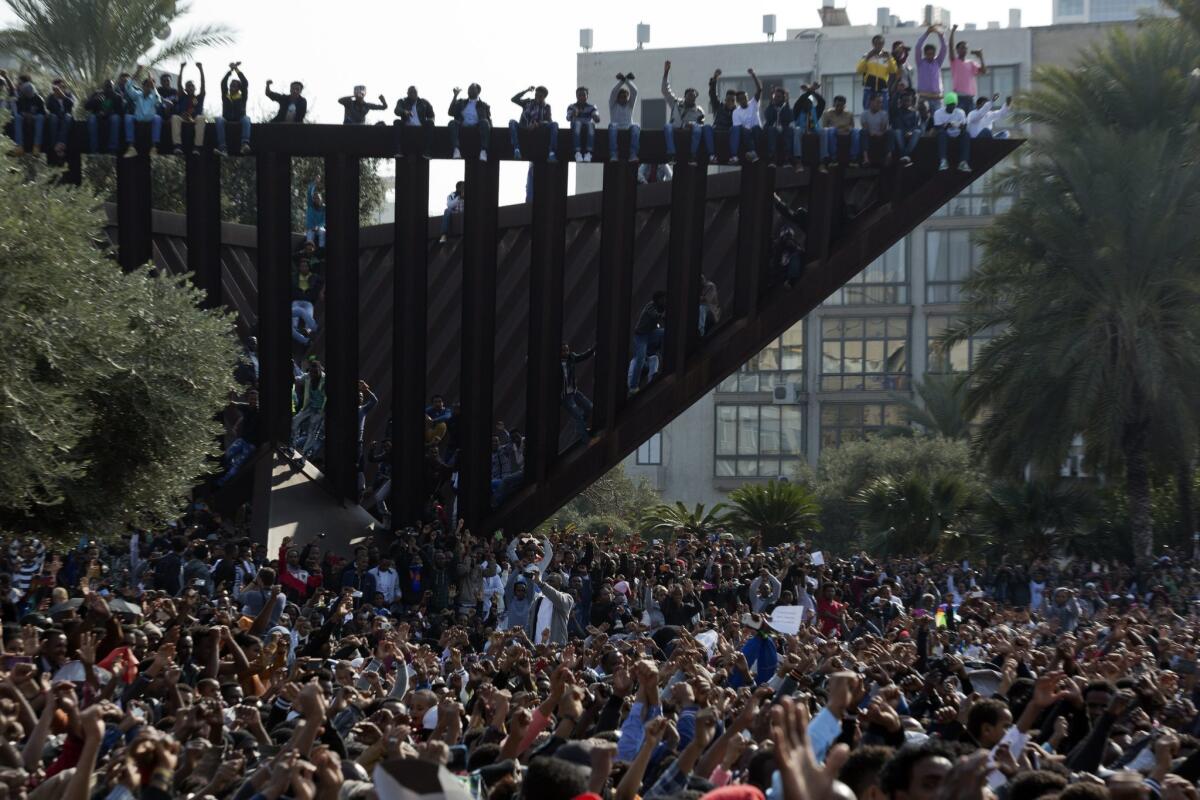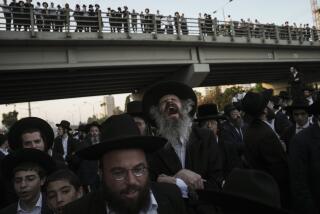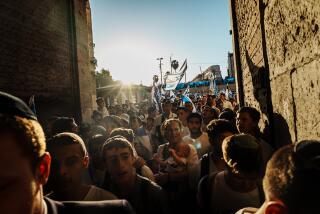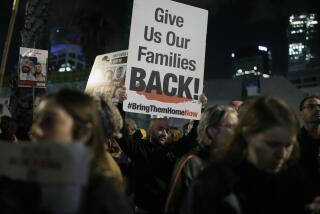African migrants protest in Tel Aviv, demand better treatment

JERUSALEM â In an unusual show of strength by one of the weakest groups in Israeli society, thousands of African migrants demonstrated in Tel Aviv on Sunday to protest their treatment by the Israeli government.
An estimated 10,000 migrants from African countries poured into Tel-Avivâs Rabin Square, chanting slogans that demanded human rights and opposed government policies aimed at discouraging them from staying in Israel by forbidding them from working and placing them in detention.
âWe want our freedomâ and âNo more deportationâ were among the calls cried at the rally, attended by politicians, social activists and rights organizations. Some held signs reading âFreedom yes, prison no.â
As Israelâs policies grow more heavy-handed, anxiety and fear of jail, deportation and poverty are driving the migrants to protest more actively.
Sundayâs protest came amid calls for a three-day strike. Although most are not permitted to work in Israel many do, mostly cleaning and other menial jobs at restaurants and hotels.
Some proprietors of Tel Aviv businesses employing migrants gave their blessing to the strike and did dishes and cleaned while their African staff protested. Omri Dosh, a cafe owner, told Israeli media he believes the migrantsâ struggle is legitimate.
âIf theyâre already here, they must be cared for and not put into jail,â he said. âTheyâve done nothing wrong.â
Hundreds more demonstrated in Eilat, Israelâs southernmost city and a Red Sea resort town bordering Egypt.
Last month, around 200 migrants defied regulations and left a holding facility, marching 40 miles to protest outside government offices in Jerusalem. They were arrested shortly afterward. In documents asking the court to detain them, the state referred to the detainees by numbers only, not name, eliciting criticism from the judge as well as activists and holocaust survivors.
Israel is the reluctant home to a community of some 54,000 Africans who entered the country illegally through its border with Egypt over the past decade, mostly from Eritrea and Sudan.
The Africans say they are asylum-seekers and refugees, but relatively few have been granted this status through the government-run Refugee Status Determination process. The government calls them âinfiltratorsâ and illegal work migrants.
A recently completed fence along Israelâs 140-mile-long border with Egypt, a project that took four years and around $377 million, has reduced the influx of new migrants from Africa to a trickle.
Intent on deterring more Africans from coming and those in Israel from staying, the government recently passed a law allowing it to jail infiltrators for a year without trial, and put others in indefinite detention.
The new law replaced a harsher one that was overturned in September by Israelâs supreme court, which called it unconstitutional and a violation of human rights. Rights organizations have already filed a petition against the latest legislation.
The United Nations High Commissioner for Refugees released a statement criticizing the Israeli government for policies that it said were arousing fear and chaos among those who seek asylum.
The UNHCR called on Israel to stop defining asylum-seekers as infiltrators and allow them international protection.
Israel cannot deport Sudanese and Eritreans, the bulk of such migrants in Israel, to their countries of origin, and is looking for third countries willing to take in the migrants. Several thousand have left Israel this year, after the government increased the grant given those leaving in a process it says is voluntary.
Sobelman is a special correspondent.
More to Read
Sign up for Essential California
The most important California stories and recommendations in your inbox every morning.
You may occasionally receive promotional content from the Los Angeles Times.










